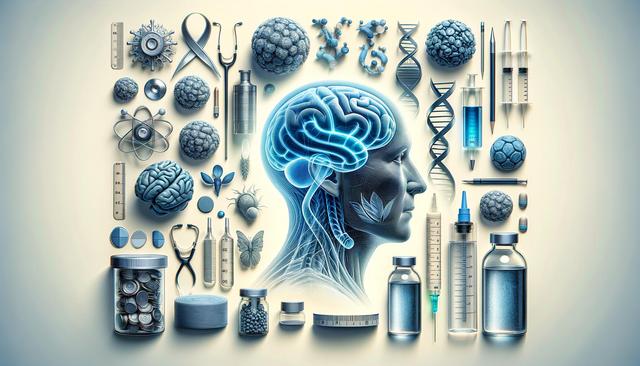Recognizing the Early Signs of Alzheimer’s Disease
Spotting the early signs of Alzheimer’s disease can make a meaningful difference in how individuals manage their condition. These signs may begin subtly, such as occasional forgetfulness or difficulty recalling recent events. As the disease progresses, symptoms become more noticeable. Recognizing these early indicators provides an opportunity to seek medical help sooner and initiate care strategies that can delay further decline. Common early symptoms include:
- Memory lapses involving recent conversations or events
- Challenges in planning or solving problems
- Confusion about time or place
- Difficulty completing familiar tasks
- Changes in mood or personality
Being aware of the early signs of Alzheimer’s disease empowers families to pursue evaluations that can confirm a diagnosis and begin planning appropriate interventions. Early action can help maintain a person’s independence for a longer period and reduce the emotional and logistical strain on caregivers.
The Process of Alzheimer’s Disease Diagnosis
Receiving an accurate Alzheimer’s disease diagnosis involves multiple steps, often starting with a primary care visit. Physicians typically conduct a thorough review of medical history, ask about symptoms, and may request input from close family members. A physical and neurological exam is often performed to rule out other conditions. Key tools used in diagnosis may include:
- Cognitive and memory assessments
- Blood tests to rule out other causes of memory loss
- Brain imaging, such as MRI or CT scans
- Psychiatric evaluations to assess mental health status
Diagnosis is not always immediate. It can require multiple visits and consultations with specialists such as neurologists or geriatricians. A confirmed Alzheimer’s disease diagnosis allows for better planning and access to treatments that may help manage mild Alzheimer’s symptoms and improve overall quality of life.
Understanding Mild Alzheimer’s Symptoms and Their Impact
In the early stages, individuals may experience mild Alzheimer’s symptoms that allow them to function relatively independently. However, these symptoms can still interfere with daily activities and often require adjustments to routines and environments. Common symptoms in this stage include:
- Increased forgetfulness
- Difficulty finding the right words
- Struggles with spatial awareness
- Trouble remembering names or appointments
Support during this stage often includes medication to manage symptoms, cognitive therapies, and lifestyle modifications. Providing structure, using memory aids, and maintaining a consistent routine can help ease some of the challenges. Understanding this phase is essential for families to offer the right level of support while encouraging as much autonomy as possible.
Exploring Care Paths and Treatment Options
Care paths for Alzheimer’s are personalized strategies that consider the stage of the disease, the individual’s health, and family dynamics. These care paths often evolve as the condition progresses. Treatment in early stages may focus on managing symptoms and slowing cognitive decline, while later stages require more comprehensive support. Some common components of care paths include:
- Pharmacological treatment to manage cognitive symptoms
- Cognitive training and memory support programs
- Physical activity and nutrition planning
- Support groups for patients and caregivers
- Legal and financial planning support
Coordinated care involving doctors, social workers, and care coordinators can help families navigate complex medical and emotional decisions. Care paths also address transitions, such as moving from home care to assisted living, ensuring the patient receives appropriate care at each stage.
Ways to Improve Memory and Cognition
While there is currently no cure for Alzheimer’s, there are several ways to improve memory and cognition that can enhance quality of life. These approaches are often most effective when initiated early and integrated into daily routines. Some evidence-based strategies include:
- Engaging in regular physical exercise, which supports brain health
- Following a brain-friendly diet rich in fruits, vegetables, and whole grains
- Participating in cognitive training exercises such as puzzles or memory games
- Maintaining social connections and engaging in meaningful conversations
- Establishing structured routines to reinforce memory
These practices are not only beneficial for those diagnosed with Alzheimer’s but also serve as preventive measures for others concerned about cognitive decline. Creating a proactive care environment that promotes mental engagement and physical well-being can help manage the progression of symptoms and support a better day-to-day experience for patients and caregivers alike.
Conclusion: Supporting the Journey Through Alzheimer’s
Understanding care paths for Alzheimer’s disease equips families and caregivers with the tools to provide compassionate, informed support. Early recognition of symptoms, timely diagnosis, and a thoughtful approach to treatment can make a significant difference in managing the condition. By focusing on ways to improve memory and cognition and adapting care as needs evolve, individuals can maintain a sense of dignity and connection. Supporting someone with Alzheimer’s is a journey that requires patience, planning, and continuous learning, but with the right strategies, it can also be one filled with meaningful moments and enduring relationships.




Leave a Reply